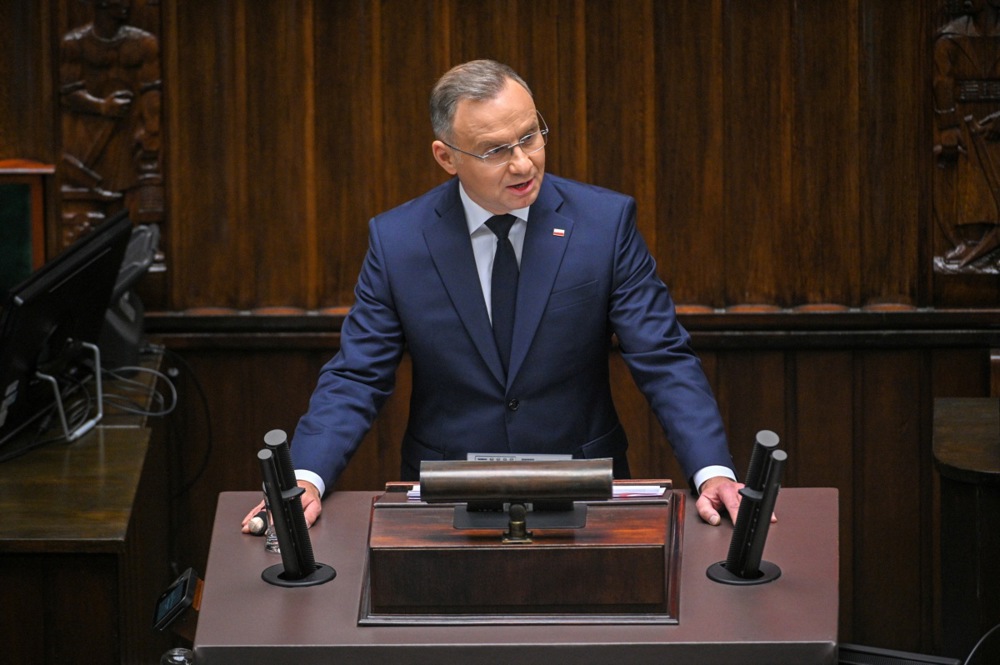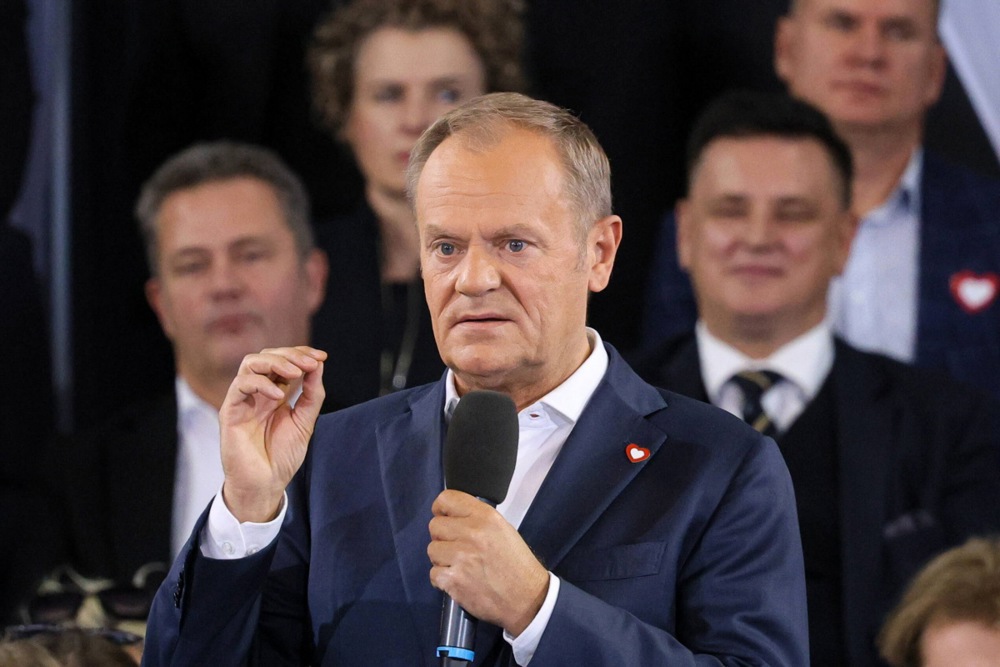Polish Prime Minister Donald Tusk has expressed his satisfaction at the outcome of a European Council meeting on October 17 at which the council expressed support for Poland and other nations facing the apparent ‘weaponization’ of migration by hostile countries such as Belarus.
The council, which defines the general political direction of the EU, gave the go-ahead for the temporary suspension of the right to file asylum applications.
The meeting followed the Polish Government’s unveiling of a new migration strategy on October 15, including temporarily halting asylum for migrants entering Poland through the country’s eastern border with Belarus. The issue was raised at the council by Tusk who appealed to his colleagues, the 27 heads of state and government, for support.
Speaking after the council meeting, Tusk said it had gone better than he had hoped. “That was easier than I expected. What I wanted to achieve on this issue has been accomplished, primarily understanding.”
EU leaders who were present in Brussels for the meeting backed Poland’s stance and stated: “Russia and Belarus, or any other country, cannot be allowed to abuse our values, including the right to asylum, [or] to undermine our democracies.”
The European Council expressed “its solidarity with Poland and with member states facing these challenges. Exceptional situations require appropriate measures, ” it said, adding: “The European Council recalls its determination to ensure effective control of the Union’s external borders through all available means, including with the support of the European Union, in line with EU and international law.”
The European Commission on October 14 had reminded Poland of its asylum obligations under international law but the European Council accepted Tusk’s explanation of Poland’s move as a temporary suspension not of asylum rights but of the receipt of asylum applications on Poland’s eastern border.
Tusk stated his country was not rejecting asylum rights per se: “It’s not about suspending the right to asylum, but about temporarily and territorially suspending the acceptance of applications where the border is illegally and forcefully crossed, namely at the Belarusian border. Everyone understands this here.”
Poland has been dealing with an illegal migration crisis at its border with Belarus since 2021, with both Warsaw and the EU accusing Belarus and its ally Russia of facilitating encroachments of its border by migrants from the Middle East and Africa.
At the beginning of that issue, the previous government, led by the conservative PiS, had decided to build fortifications on the border and employed a strategy of “push-backs” across the Belarusian borders that was denounced by human rights groups. That approach was also condemned by the then-opposition Civic Coalition led by Tusk, which argued it was inhumane.
On coming to office, though, Tusk and his party have decided to further strengthen fortifications on the border. The government has reacted to the latest wave of illegal crossings by first of all giving border guards the right to open fire on migrants forcibly trying to cross the border and now by adopting a policy of suspending the right to claim asylum in a bid to further discourage crossings.
The new policy has been criticised by Polish President Andrzej Duda. In a speech to the Polish parliament on October 16, he claimed that Belarusian opposition activists escaping from that country would not longer be able to claim asylum. He added that the new policy would not discourage crossings by those who do not want to claim asylum in Poland but wished to travel on to Germany and other West European countries.
PIS spokesman Rafał Bochenek MP told reporters on October 17 that Tusk’s stance on migration was “a smokescreen for accepting the EU migration pact involving the relocation of illegal migrants”.
Bochenek also claimed that the Tusk government had “missed the opportunity of stopping the EU migration pact being agreed, a pact which constitutes a huge threat of Poland receiving thousands of totally unwanted migrants”.
Former PiS PM Mateusz Morawiecki on October 17 told a press conference in Brussels: “The current Polish Government is helping those in Brussels who want to return to the previous shape of the migration pact,” adding that the pact’s forced relocation of migrants constituted “a violation of the principle of freedom and sovereignty of members of the European community.”
Reports have recently appeared in the Polish media outlets such as Interia.pl claiming the Polish foreign ministry fears that Germany may be planning to use the Dublin agreement on migration and other legal means to send 40,000 migrants who crossed the Polish-German border back to Poland.
On October 14, it was revealed that the European Commission planned to fund the setting up of 49 provincial migration centres to register and help in the integration of migrants.





